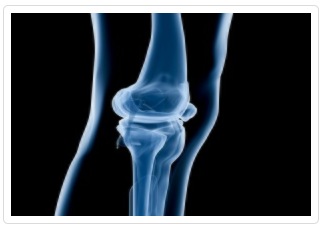ARE PROFESSIONAL ATHLETES RETURNING TO COMPETITION TOO SOON AFTER KNEE INJURIES?
Tennis champion Rafael Nadal recently asserted his intention to enter the Mubadala Tournament in Abu Dhabi. The tournament takes place just six months after Nadal sustained a partial tear of the patellar tendon in his left knee. His decision comes as a bit of a surprise, as the return from a patellar tendon tear is typically handled with more caution.

The patellar tendon attaches the bottom of the kneecap (patella) to the top of the shinbone (tibia) and is crucial to proper alignment of the knee. While partial tears of the patellar tendon may not require surgery, adequate rest and a rigorous physical rehabilitation program are necessary to restore strength and range of motion to the knee.
Professional athletes frequently walk the line between a premature return and a miraculous recovery. Some provide inspiration, such as recent NFL MVP Adrian Peterson, who made a phenomenal return to football just 9 months out from ACL surgery. Others, such as rookie quarterback Robert Griffin III, remind us of the devastating repercussions of returning too early. And then there’s Derrick Rose, star of the Chicago Bulls, who remains unsure of his ability to return after undergoing ACL surgery last season.
As for Nadal’s return, only time will tell. Though it may be tempting to rush the recovery timeline for a knee injury, doing so can disrupt the body’s natural healing process and increase the risk of re-injury upon return to physical activity.
The Importance of a Balanced Recovery
While recovering from a knee injury, you must balance the desire to return to an active lifestyle with the need to fully heal and restore optimal function to your knee. If you place stress on your knee too early, you may end up prolonging pain and disrupting the body’s natural repair process. In the case of reconstructive knee surgery, over-stressing the knee too early could lead to failure of a repaired or replaced ligament.
The pressure to maintain an optimum level of performance drives many professional athletes to seek out the most aggressive physical rehabilitation programs that are condensed into the shortest amount of time. With accelerated and intensified exercise schemes needed to meet the high demand they will place on their knee upon return, it is inevitable that these athletes assume an increased risk of re-injury.
Dedication to rigorous physical therapy is the most important factor influencing the successful recovery from a knee injury. Treatment typically involves an individualized exercise schedule to improve range of motion and function of the knee. In order to achieve both adequate healing and a timely recovery, these guidelines should be strictly followed:
- Perform all rehab exercises as prescribed in your physical therapy program
- Get proper nutrition to aid in the body’s natural healing process
- Avoid over-exerting yourself with daily activities
- Take pain and inflammation relieving medications as prescribed
- Get plenty of rest throughout rehabilitation
Ultimately, the speed and success of recovery from a knee injury will depend on an individual’s physical healing characteristics, desired knee performance, and dedicated adherence to a rehabilitation program.
To Speak With An Orthopedic Surgeon
Dr. Eric Millstein, a Beverly Hills board-certified orthopedic surgeon, is a leading expert in advanced arthroscopic techniques and treats various sports-related injuries. To learn more about knee injury recovery or to Schedule An Appointment, contact Dr. Millstein at (310) 595-1030.

